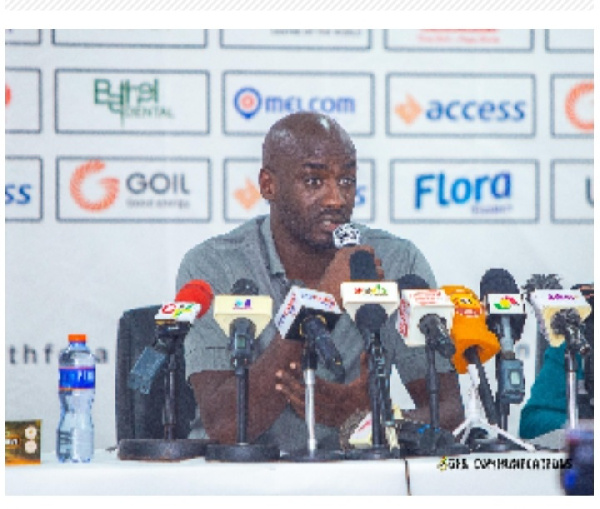It is the morning after the defeat in a big game. The morning when, as football fans, you replay the game in your mind and digest every minor and major action that could have led to a different result.
It is the morning when emotion crosses paths with logic. The pain and agony that consumed you in the immediate aftermath of the game converge with your objective analysis based on your knowledge of the game.
In the context of Ghana versus Sudan, this becomes the morning when you question why Otto Addo perhaps did not start Jordan Ayew, why Alidu Seidu, who came out of the first leg as the best player in a Ghanaian jersey, could not do the basic job of clearing the ball that led to the second goal, why Lawrence Ati-Zigi could not grab the ball, why the Ghana Football Association opted for Otto Addo when Kwasi Appiah could have done the job. It is a morning of a lot of ‘whys and what ifs.’
For most football fans, and in this situation, Ghanaians who still wear their emotions when it comes to the Black Stars, this is the time that a major defeat such as the 0-2 loss to Sudan on Tuesday hurts the most.
As hurting and emotionally destabilizing as it is, it is also the morning when you view the game from a purely analytical point of view and realize that in the heat of the moment you might have made certain statements and formed certain opinions that do not accurately reflect the issues at hand.
The emotional rollercoaster of suffering a defeat that nearly puts the nail in the coffin of your qualification to the continent’s biggest tournament might have triggered a crusade to get Otto Addo out of the Black Stars job, but an honest, dispassionate, and holistic surgery of not just the last two matches but Ghana football under the guidance of Kurt Okraku will birth the realization that while Otto Addo cannot claim infallibility, he is not the problem and that he could actually be part of the solution in the long term.
Three defeats, three draws, and two wins in eight matches played so far are results that should get any Black Stars coach sacked, especially when the draws and losses have placed Ghana on the brink of non-participation in the AFCON for the first time in 20 years. It is a sackable record, and Otto Addo should have by now been accorded the tag “former Ghana Black Stars coach. But one common feature of great football nations and clubs is their ability to see beyond the numbers and poor results and focus on the project and process.
When the Ghana Football Association gave Otto Addo a 34-month contract with an option for a further 24 months, the message they sent was that it was a long-term marriage with the focus on achieving long-term success. The expectations at the time might not have included missing out on the AFCON, but as with any successful marriage, there are always significant challenges that push the marriage to the brink of collapse, but the dedication and commitment of both parties to the long-term success and enjoyment is the glue that keeps the relationship ticking.
As things stand now, the relationship between the FA and Otto Addo has reached a near-breaking point, and it will be perfectly understood if the FA offers the head of Otto Addo to the blood-baying Ghanaian public who want him gone. It is, however, imperative for the FA to maintain some perspective and cast their mind back and look at why they went against their own criteria of appointing an experienced coach to appoint a relative novice like Otto Addo, who up until the Ghana versus Nigeria game in the 2022 World Cup qualifiers had not appeared in the dugout of a first team.
In Otto Addo, the FA appointed a coach whose footballing philosophy not only aligns with the global trend of possession-based football but also Ghana’s much-touted ‘agro’ football. Otto Addo is a German-trained coach from the Dortmund school, which focuses on fast-paced attacking football, which perfectly suits the current trend of global football of which Ghana is part. As indicated in his first major press conference after his appointment, while he is a student of possession-based football, he is also pragmatic enough to carve out tactical approaches to counter the strengths of his opponents. As evidenced in the games played under him, particularly the last two, the Black Stars have shown some attacking and possession-based abilities with the only missing point being the failure to either create or convert the chances.
Another reason why the FA must not bow to public pressure to oust Otto Addo is that the Black Stars coaching job needs some stability. In the five years of Kurt Okraku’s presidency, the Black Stars have seen six coaches. The chopping and changing do not augur well for a team that aims to achieve success and dominate African football. Each hiring and firing means the truncation of a project and the beginning of another, which is unsustainable. It is evident in the football world that to achieve success, you have to build a team for the long term, and Otto Addo has shown that with time and support, he has the blocks to build a successful Ghana team and therefore needs to be backed by the FA.
Ghana football is in a mess, with the defeat to Sudan marking the depth of the fall, but if the country wants to rebuild its most cherished sport, Otto Addo, who learned his trade in one of the world’s leading footballing nations and at one of the world’s project-based football clubs, needs to be part of the process.
Source: Ghanaweb

